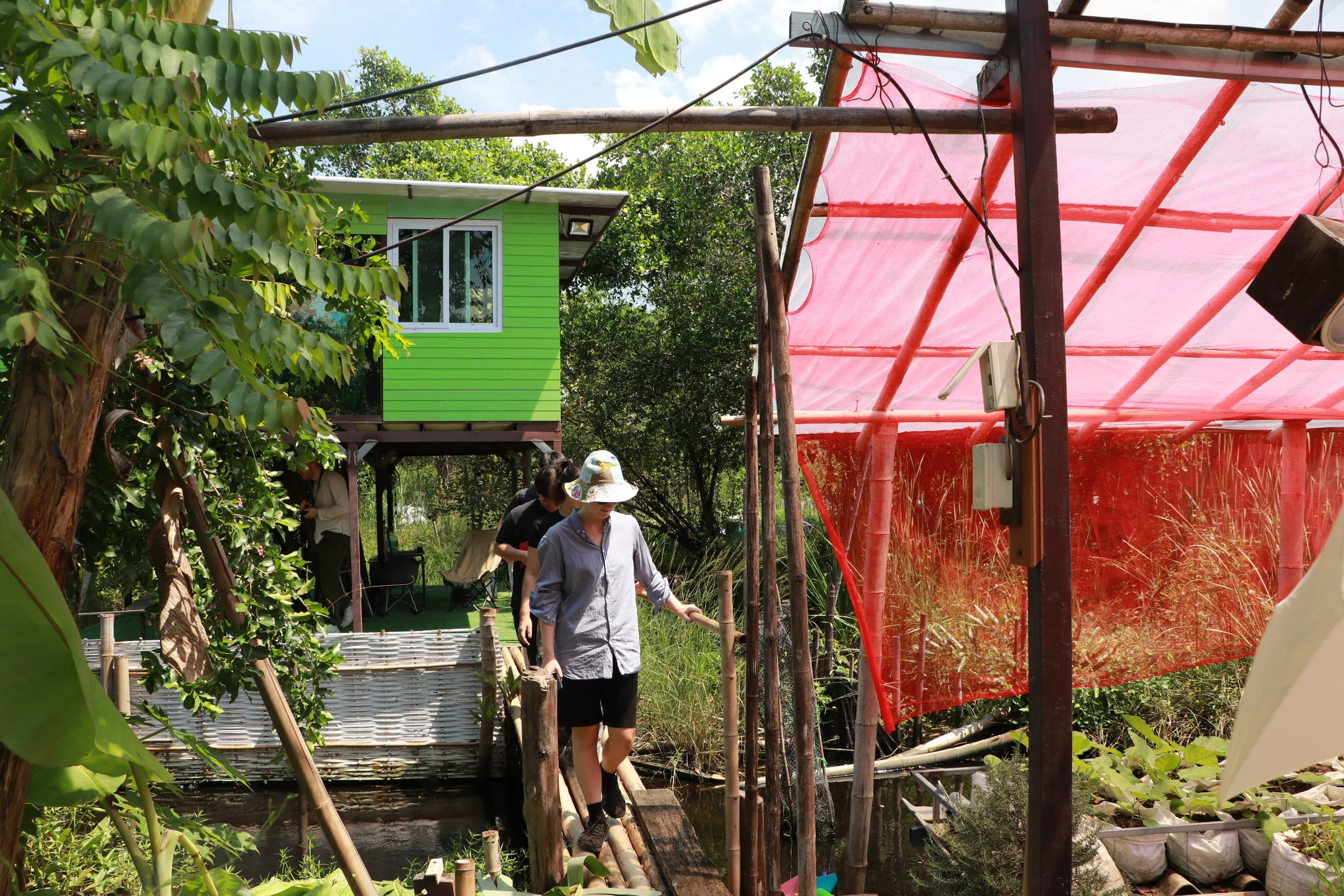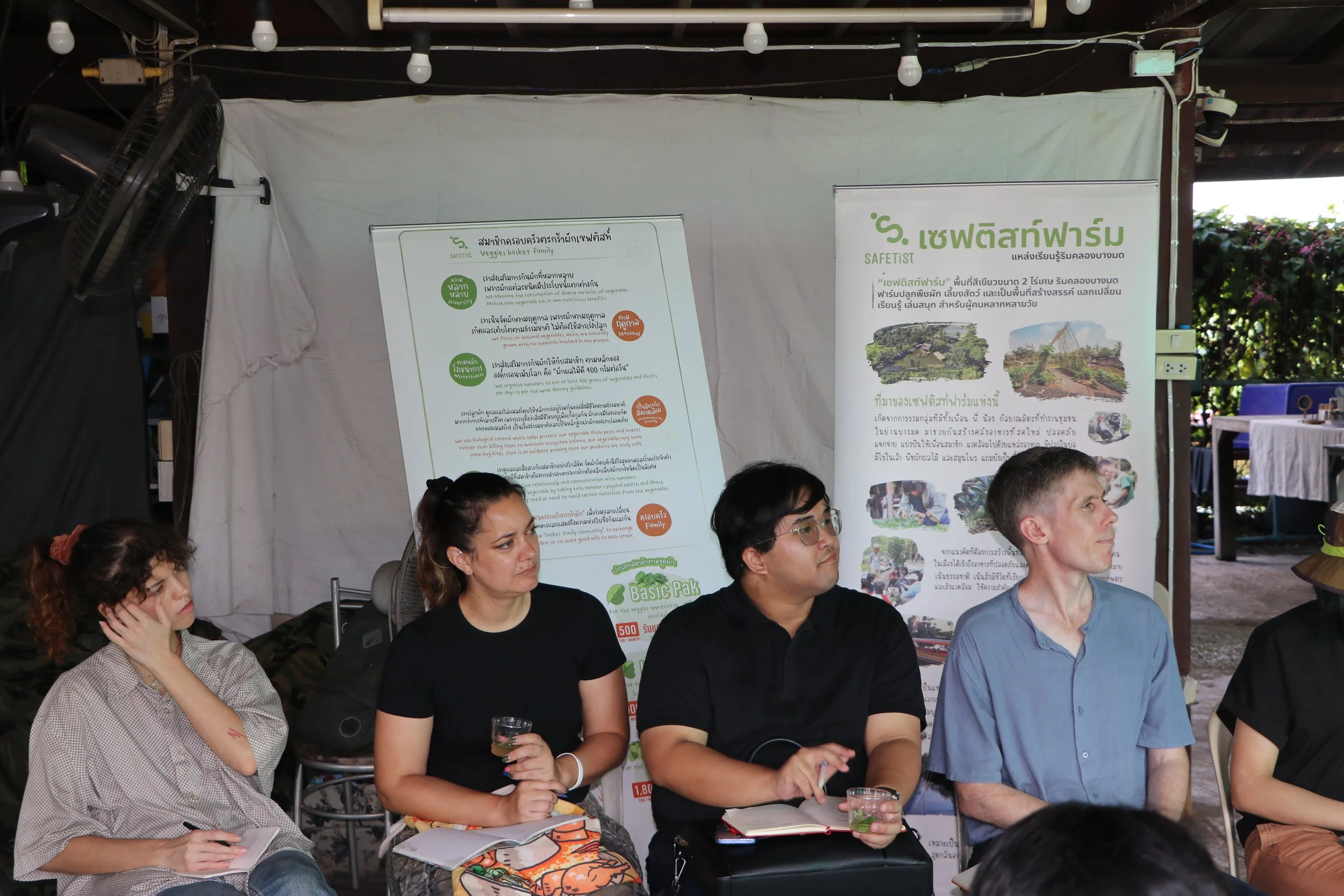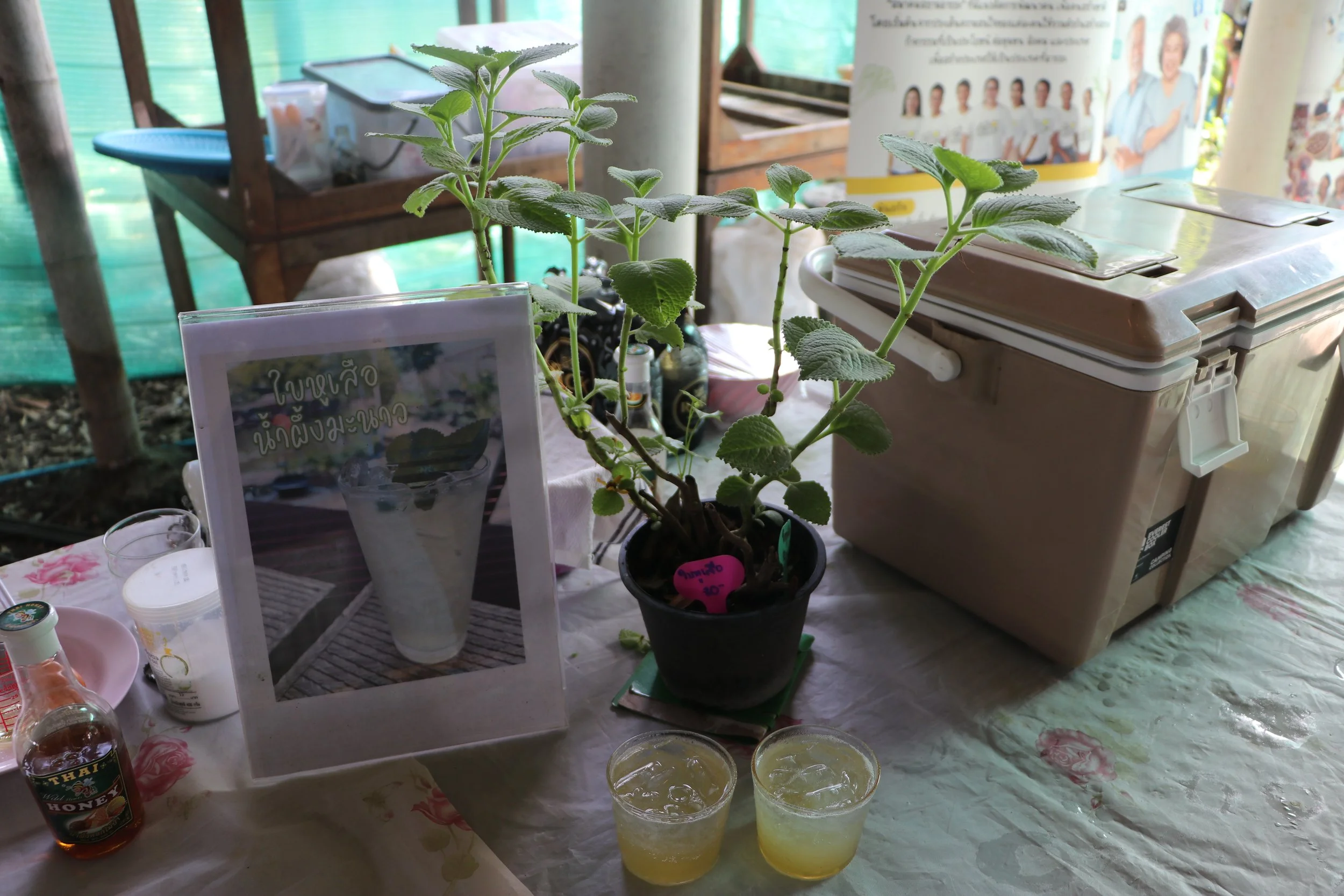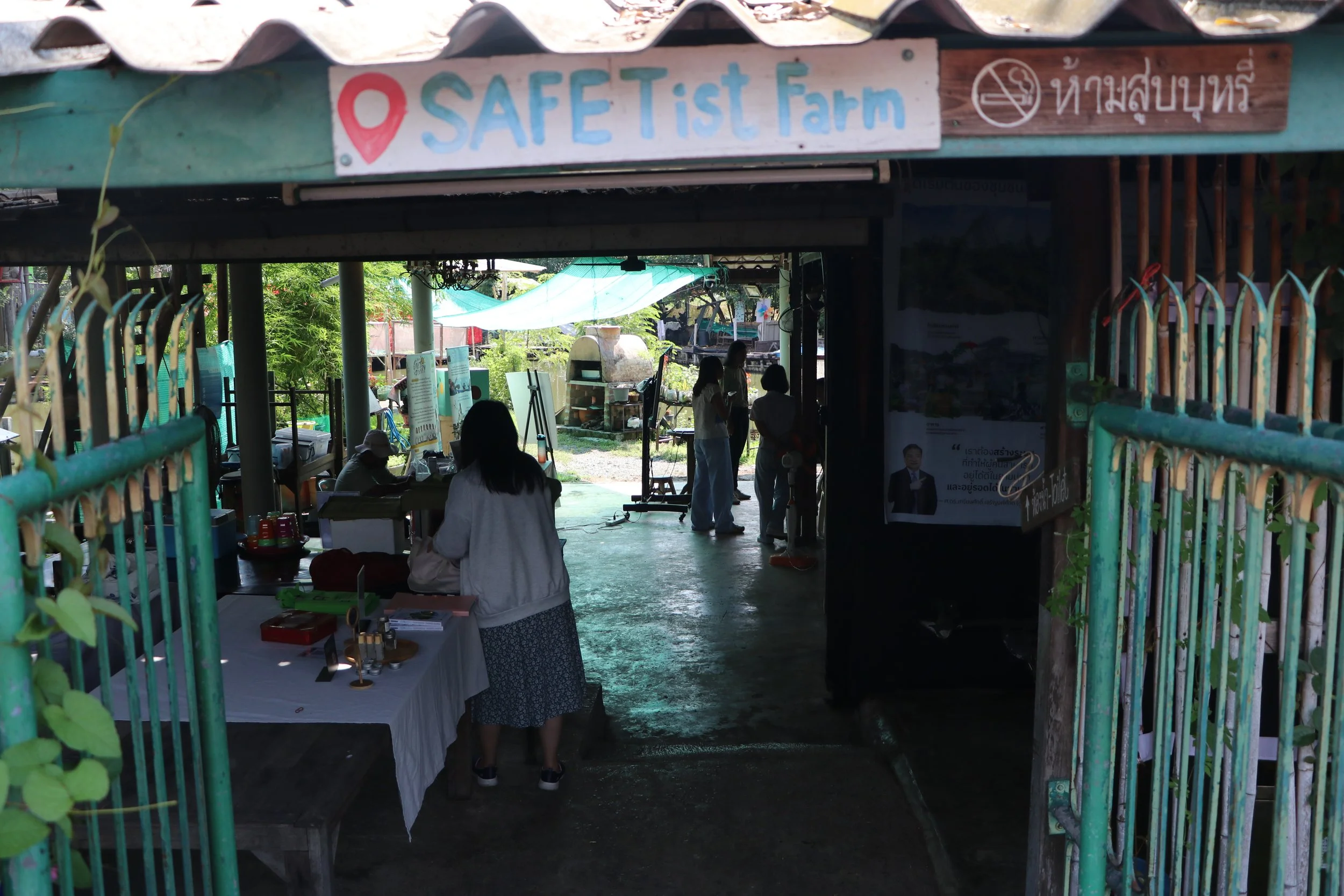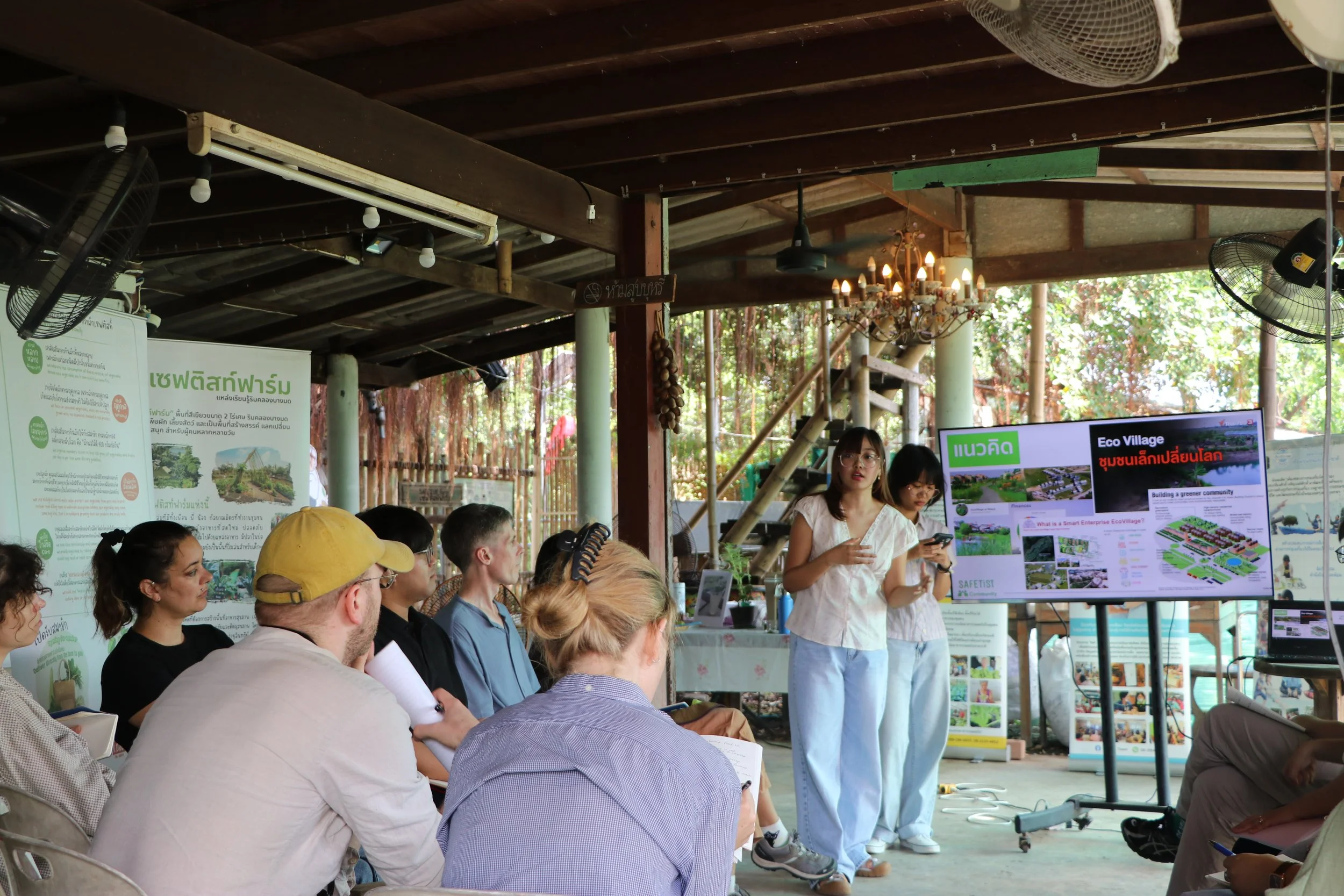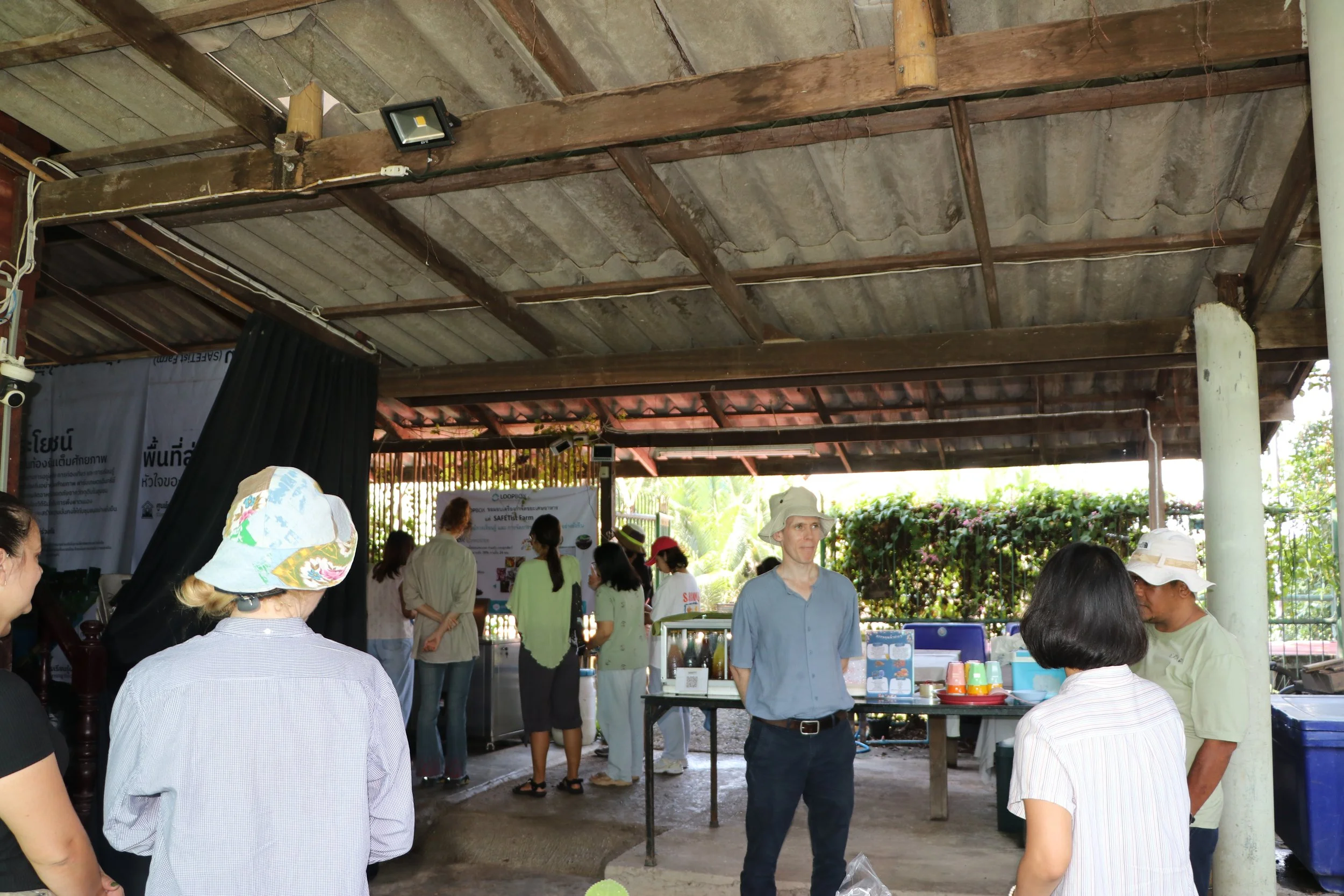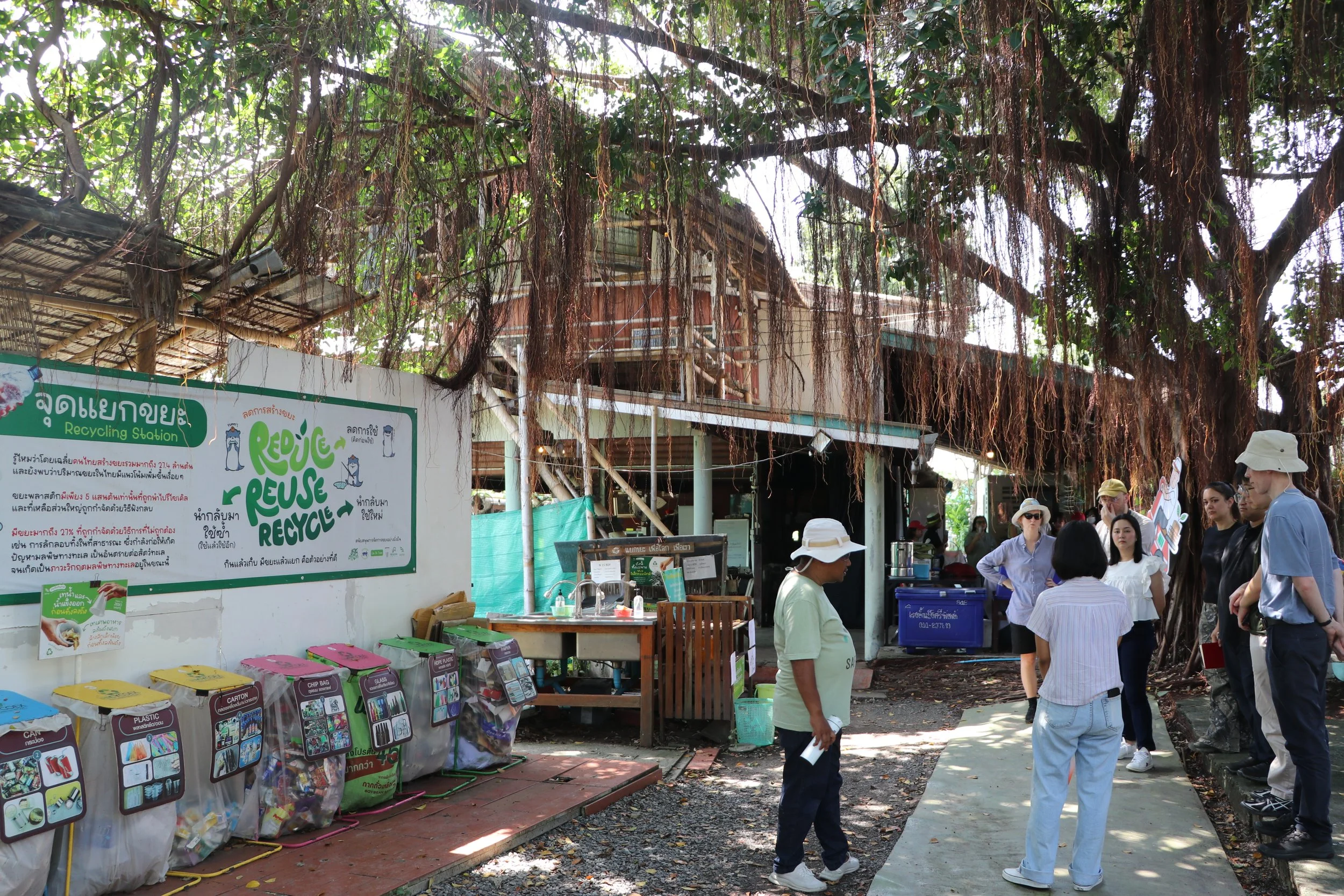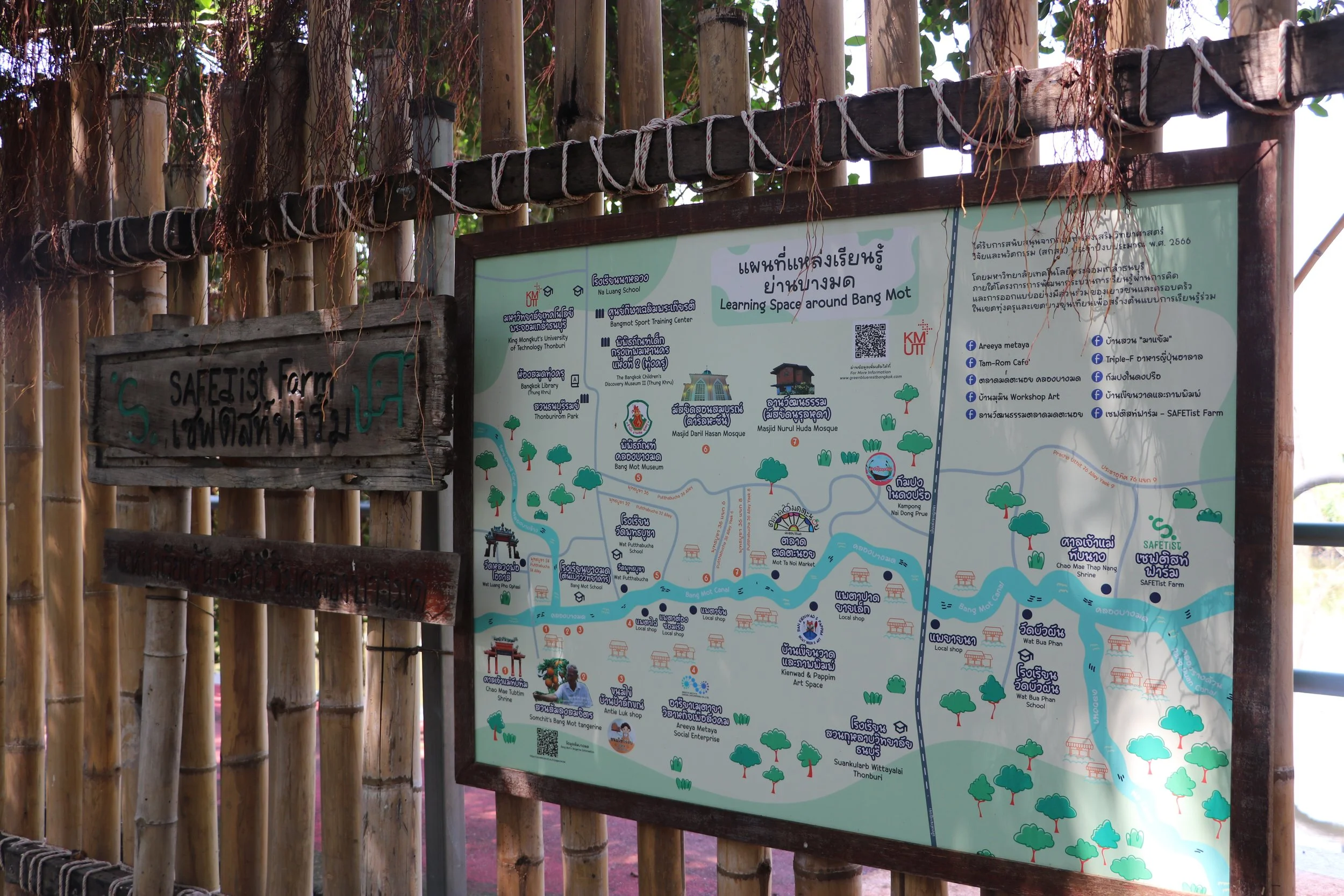On 16 October 2025, students on the Environmental Politics and Policy course with the MAIDS-GRID program, Chulalongkorn University, visited SAFETist Farm in Bang Mot, Bangkok. The field trip aimed to explore how environmental policies and political ideas come to life through community-based initiatives that link sustainability, local development, and social justice. SAFETist Farm offered students a practical and inspiring learning experience, showing how grassroots innovation and community empowerment can drive real environmental change in peri-urban spaces.
The farm serves as a food producer, a learning hub and an ecological community, demonstrating how urban residents can grow food, manage waste, and live more sustainably. The farm emerged during the COVID-19 pandemic, when many people lost their jobs, and the SAFETist team formed after realizing the importance of being able to grow their own food. What began as a small urban farm soon became a model for self-reliance and food security in the city.
The SAFETist model shows how urban agriculture can strengthen food security while reducing inequality. The team works closely with the nearby Bang Mot communities, collaborating with them in farming-related projects and food distribution, promoting local ecotourism, and other community initiatives. The farm also has a vegetable basket membership program, offering locally grown, affordable and chemical-free produce delivered within 24 hours of harvest. This initiative promotes ethical consumption and food justice, proving that sustainable food systems can thrive even in urban areas. Beyond food production, the SAFETist Farm team also contributes towards preserving the Bang Mot Canal through eco-tourism, including kayaking routes and community workshops. These activities not only generate income for local residents but also help keep the canal and surrounding green spaces vibrant and healthy.
Through this field visit, MAIDS students gained valuable insights into how environmental governance and community participation intersect. The farm’s work - in its aspiration to create a thriving eco-community - embodies key principles of decentralization, resilience, and inclusivity. Students reflected on how small-scale initiatives like SAFETist Farm connect sustainable agriculture to low-carbon urban development, and how sustainability is ultimately about people, cooperation, and the courage to imagine new ways of living.
As the students walked back toward the canal, one thing was clear that SAFETist Farm is more than a project. It is a vision of how urban communities can thrive, where sustainability begins with people and the environment living well together.
To learn more about SAFETist Farm here:
https://www.facebook.com/safetistfarm/?checkpoint_src=any
EI EI LIN
Communication Coordinator
MAIDS-GRID Program

